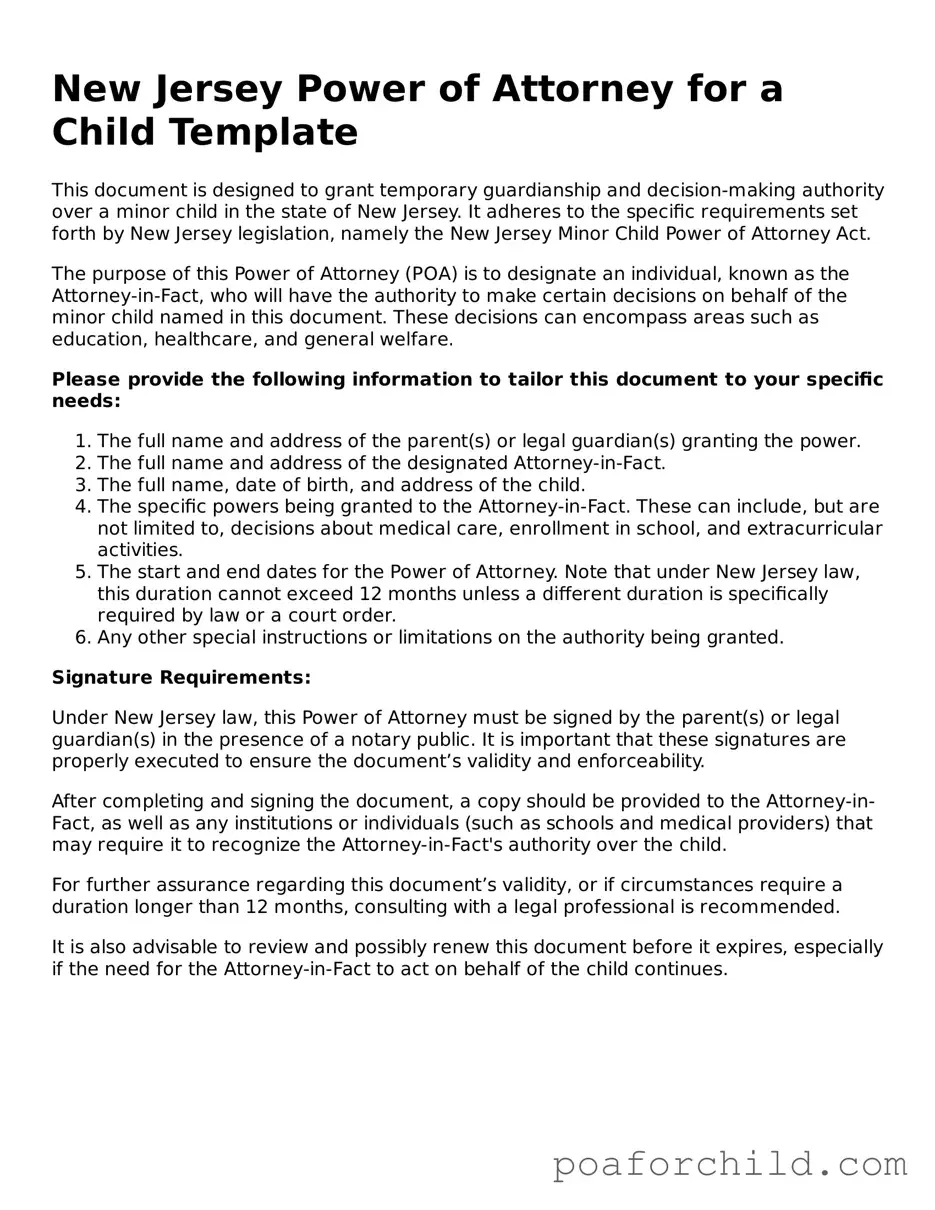Detailed Guide for Using New Jersey Power of Attorney for a Child
Granting someone the power to make decisions for your child can be a significant step. The New Jersey Power of Attorney for a Child form allows parents or guardians to officially appoint an individual to act on their behalf concerning their child’s welfare, education, and health decisions when they cannot do so themselves. This document provides peace of mind knowing your child's needs can be promptly and effectively addressed by someone you trust during periods of absence or incapacity. To complete this vital form correctly, follow these straightforward steps:
- Start by filling in the date at the top of the document, ensuring it's the current date to signify when the Power of Attorney goes into effect.
- Enter the full legal names and addresses of the parent(s) or legal guardian(s) granting the power of attorney, known as the principal(s).
- Specify the full legal name, relationship to the child, and address of the person being granted the Power of Attorney, referred to as the agent.
- Clearly write the child’s full name and date of birth, to whom the document pertains.
- Document the specific powers being granted to the agent, such as decisions about the child’s education, health care, and general welfare. Include any limitations to these powers if necessary.
- If there's a specific time period during which the Power of Attorney will be in effect, include the start and end dates. If no end date is specified, note that the document will remain in effect until explicitly revoked.
- Both the principal(s) and the agent must sign and date the form in the presence of a notary public. Ensure the notary also signs, dates, and affixes their official seal to the document, validating its authenticity.
- It’s recommended that copies of the signed document be distributed accordingly. Ensure the agent, the child’s healthcare providers, and educational institutions have copies, so they recognize the agent’s authority.
Once completed, the New Jersey Power of Attorney for a Child form solidifies an important legal arrangement, ensuring your child is cared for by someone you trust in your absence. This document lays the groundwork for your child's safety and well-being, signaling clear decisions about who holds the right to make critical choices on their behalf. Remember, the power granted can always be revoked should circumstances change, ensuring that the child's interests are always protected.
